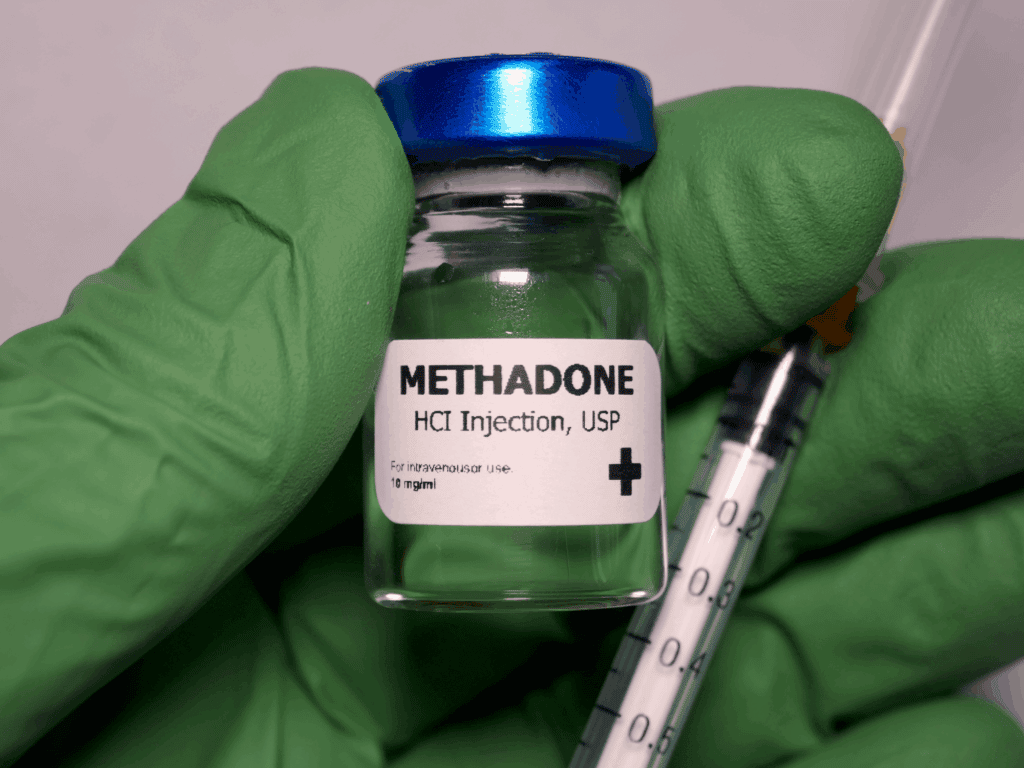Detox for Methadone
Many people who undergo treatment for heroin addiction using methadone detox become addicted to it as well. They remain on the drug for years, fearful of the withdrawal symptoms that will ensue once they discontinue use.
There are alternatives to methadone treatments that can free recovering heroin addicts from the cycle of addiction. A progression of lower dosages to suspend drug use supported by a drug rehabilitation program at a qualified methadone detox center can help many end substance abuse and remain drug free.
The Problem With Methadone
Opponents of methadone therapy call attention to the fact that patients who use methadone are still suffering from addiction and that the therapy does not address the cause of addictive behaviors. The overwhelming psychological dependence accompanied by substance abuse involving a number of drugs often abates any progress made.
Some methadone users have been known to sell drugs that are prescribed to them to obtain money to purchase heroin. This has contributed to methadone being added to the list of addictive drugs sold illegally.
Obtaining methadone through fraudulent means is prevalent among those who are addicted to drugs. Individuals who are addicted to methadone may exhibit behaviors they wouldn’t ordinarily to obtain the drug.
One common practice for acquiring the drug is to convince a physician that a higher dose than necessary is needed. Those who are addicted frequently take larger amounts of methadone than is prescribed and in combination with other drugs including alcohol. Some users take methadone while continuing to use heroin.
In studies where patients were administered both heroin and methadone orally while remaining uninformed of which they were given, they were unable to differentiate between the effects of the two.
Another problem experienced by those using methadone to treat heroin addiction is withdrawals. Heroin withdrawals typically last seven to ten days while methadone withdrawals may last a month or more.
It is ironic that a drug used to treat addiction to narcotics such as methadone is often found on the black market and has been attributed with being the cause of numerous deaths from overdose.
Methadone places users at risk for developing a tolerance and subsequently addiction. Withdrawal from methadone has been referred to as a horrendous experience. Numerous individuals who were once addicted to heroin have stated that heroin withdrawal is much less severe than those of methadone.
Previously, heroin addicts were prescribed enough methadone to last a week or a month. Many addicts would sell their methadone on the black market. As a result, methadone became a common street drug. School aged children have found with the drug, and on more than one occasion, it has resulted in their death.
This has led to many methadone maintenance programs requiring addicts to obtain their prescriptions on a daily basis. In some cases, the patient must swallow the medication while being observed. These measures are intended to prevent methadone from being sold as a street drug.
Where Did Methadone Originate?
Methadone is a synthetic opiate that was first synthesized in Germany during World War II. It was marketed under the brand name Dolophine as an analgesic and used to treat severe pain.
Methadone is still prescribed for pain relief, but is most often used to treat narcotic addiction. Its effects are longer lasting than those of morphine derivatives. Methadone is effective for up to 24 hours, allowing a single daily dose to be used for heroin detox and other drug treatment programs.
How is Methadone Administered?
Methadone as typically administered orally as a liquid. It is sometimes prescribed in the form of a tablet or injectable ampoule. As with many other narcotic drugs, methadone is often resold to become available illegally.
What are the Adverse Effects of Methadone?
Methadone has been known to produce serious side effects including:
• Seizures
• Abnormal heartbeat
• Difficulty breathing
• Nausea and Vomiting
• Vision Problems
• Hives
What are the Symptoms of Methadone Overdose?
An overdose of methadone can lead to unconsciousness, coma, or death. Symptoms of an overdose include:
• Small, pinpoint pupils
• Slow or shallow breathing
• Drowsiness
• Cool, clammy, or blue skin
• Loss of consciousness; coma
• Limp muscles
How to Detox from Methadone
Suboxone is effective for detox in medication assisted treatment programs for opiate dependence including methadone. It complements education and other means of support that center on the behavioral aspects of opiate addictions.
Suboxone alleviates the withdrawal symptoms and cravings that can distract patients from recovery efforts and allows them to focus on addiction counseling.
The active ingredient in Suboxone is buprenorphine. Buprenorphine has become a widely accepted alternative to methadone. It is viewed as much safer and has a dosage ceiling that limits the euphoric effects. Suboxone drastically reduces the amount of time it takes to detox from methadone.
Northbound Treatment Services has more than 25 years experience in helping those with prescription drug addictions regain control of their lives.
They understand that no two individuals are the same and offer customized treatment plans to meet each patient’s needs. Northbound treats drug addictions as well as underlying causes such as co-occurring mental illnesses simultaneously.
A variety of therapies and classes provide patients with coping and daily living skills to help them return to being productive members of society.
Author
-

President, CEO & Founder at Northbound Treatment Network
Paul Alexander is the CEO, President & Founder of Northbound Treatment Network in Newport Beach, California. He believes wholeheartedly in transformational leadership, organizational health and effective, fully integrated substance use disorder and mental health treatment. With over 27 years of experience in behavioral healthcare, Paul has extensive knowledge of “in vivo” treatment modalities, clinical development, operations, strategy, marketing and financial planning. He has been widely recognized for his development of collegiate-based residential treatment programs for students in recovery and authored a research study at The University of California confirming this modality’s effectiveness.
Paul’s comprehensive professional experience, willingness to innovate, and emphasis on organizational health are vital factors in Northbound’s continued success. Paul received his Certified Addiction Treatment Specialist training at Saddleback College in Mission Viejo, CA, and was awarded Outstanding Alumni Service Award in 2002. Paul holds a Bachelor of Arts degree in Criminology, Law and Society, Summa Cum Laude, from University of California, Irvine, and a Juris Doctorate degree from Loyola Law School of Los Angeles. Paul currently serves on The National Association of Addiction Treatment Providers (NAATP) board. In addition, he serves on The Family Recovery Foundation board and The CarePossible board in Orange County; both organizations are committed to raising funds for family recovery and treatment for former military personnel. Paul is in recovery himself and lives in Orange County with his wife Silvana and his two young sons, Noah and Dean.







